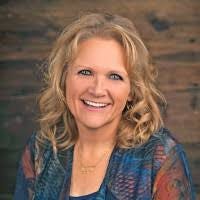Meet the Candidate: Stephanie Sauder
Sauder running in one of state's most hotly contested primaries
Rep. Stephanie Sauder is running against her House seat mate Fred Deutsch in the Senate primary for District 4.
The district includes all or parts of the following counties; Clark, Codington, Deuel, Grant, Hamlin, and Roberts.
The Dakota Scout sent a series of questions to all legislative candidates running in contested races for the state House and Senate in the June 4 primary election. Candidates were asked to limit their responses to each question to 150 words or less.
Age: 65
City of residence: Bryant
Profession: ag producer, newspaper columnist, former public K-12 teacher, former newspaper publisher/small business owner
Public service/community service experience: current State representative from District 4 (first term), former mayor of Bryant, currently on the ITC board of directors and Bryant Cinema board of directors, Bryant community volunteer, New Hope Lutheran church member/organist, Bryant Legion Auxiliary member, Parkview Assisted Living Auxiliary member, Mothers of Peace Officers member, SD Federation of Republican Woman and Codington County Republican Women member, NRA member
Family information: Husband Jerry – farmer; sons Isaac and Levi, both law enforcement officers in South Dakota; grandson George. We are lifetime Hamlin County residents; my great-great grandfather and great-grandfather homesteaded and began farming in Hamlin County in the late 1880s and my family has continued to farm and live on the land since then. My father, Milton Lakness, was a legislator in the late 1970’s – early 80’s. My mother, Benita Lakness, was a Hamlin County commissioner.
1) What's the government's role in facilitating economic development in South Dakota?
By keeping our taxes low, South Dakota will continue to entice businesses of all kinds and sizes to come to our state, to employ our citizens and further draw workforce from other states. The grants and programs that are available through the GOED and other departments and agencies especially give a much-needed boost to small businesses and the towns they are in.
2) If you could have dinner with any person, dead or alive, who would it be and why?
My maternal grandfather, Willie Stormo. I was barely a year old when he passed away but the stories and legacy he left behind have always intrigued me and made me proud to be his granddaughter. He was greatly respected in the community, served in leadership roles on many community boards and national organizations and was a leader and visionary for agriculture. I’ve never heard a disparaging comment against him; family and community members who knew him admired him for his passion for farming, his family and community, embracing new challenges such as bringing REA to our area and for his kindness, common sense and sense of humor. I like to believe I follow in his footsteps in many ways. I’d love to hear his response to, “So, whaddaya think, Grandpa?,” a question my heart has asked him many times.
3) Does the "Landowner Bill of Rights" -- adopted by the Legislature amid opposition to carbon pipeline companies using eminent domain -- strike the right balance between the interests of property owners, counties and the ag industry - and should voters get a say when they head to the polls in November?
The Landowner Bill of Rights is a stable foundation for balancing the interests of all involved parties. It provides protection and compensation for the landowners, compensation and local control for the counties, consistent parameters for pipeline companies to follow and a brighter future for the ethanol industry and South Dakota agriculture as a whole. Eminent domain cannot be banned – it’s part of the Constitution – but should only be used as the very last resort after both sides have negotiated in good faith.
It’s the voters’ right to bring it to the ballot. I don’t agree with the repeal, but the measure to repeal should be based on trustworthy, substantiated and new information from credible and reliable sources and not generated by fear and falsehoods. Thoroughly educating the public on the measure then becomes a priority before the election if this does make it onto the ballot.
















